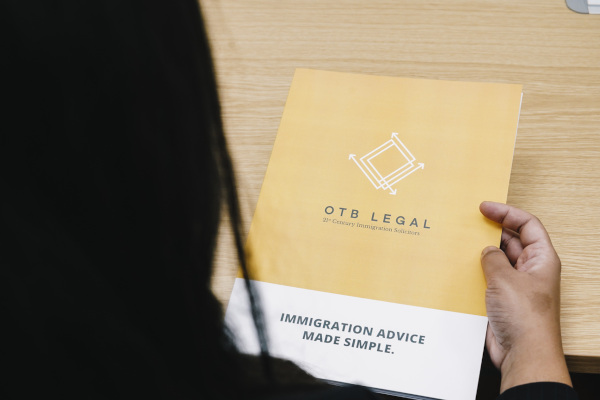When can I get ILR – Our Personal Immigration Team’s League Table
If you are in the UK with some form of limited leave to remain, you are probably aiming to attain the status of indefinite leave to remain (ILR), or its near-identical twin indefinite leave to enter (ILE), in the future.
You may already know that people with ILR/ILE have no time limit on their stay in the UK: they can live without the pressure of having to make visa renewal applications every 30 months. Those with ILR/ILE can travel freely and are only likely to lose their status if they spend more than 2 years at a time overseas.
You may have heard conversations and rumours in the community or online about ‘early ILR’ and asked yourself “does that really exist?” In this short blog, OTB Legal’s Personal Immigration Team presents you with a simplified table listing the main personal immigration routes to ILR.
Each person’s route to ILR will be different and this table is only a very rough guide. You will need specific legal advice, tailored to your situation, to establish whether you really are entitled to apply for ILR.
Note: If you are on a student or work visa, you will want to look out for our Business Immigration Team’s student and work visa ILR league table, coming soon!
| UPON ENTRY CLEARANCE |
| Adult Dependant Relative (ADR) |
| A child seeking to enter the UK to join one or both of their settled parents, in certain circumstances |
| ANY TIME |
| A child seeking to remain in the UK with one or both of their settled parents, in certain circumstances |
| Exceptional circumstances – where refusal of your ILR application would result in unjustifiably harsh consequences for you or your family, amounting to a breach of your Article 8 rights to a family life (we address this in a little more detail below). |
| If your partner died and that person was either British, held ILR, settled status or pre-settled status under the EU Settlement Scheme (EUSS) |
| If you are on a partner visa but your relationship with your partner has broken down permanently as a result of domestic abuse |
| 5 YEARS CLUB |
| Partner visas – if you are a spouse or an unmarried partner and your decision letter confirms you are on the 5 year route to settlement (probably because you met all the requirements) |
| Parent visa – if you are the parent of a British child in the UK and your decision letter confirms you are on the 5 year route to settlement (probably because you met all the requirements) |
| Private life – if you are aged between 18 and 25 and have lived more than half your life in the UK, you can apply for ILR if you have held limited leave to remain on the private life route for 5 years |
| EU Settlement Scheme – once you have been continuously resident in the UK lawfully for five years, you can apply for ‘settled status’, which is similar to ILR but even more generous! |
| 7 YEARS CLUB |
| Private life – if you were born in the UK and spent the first 7 years of your life here, you can proceed straight to applying for ILR, even if you don’t currently hold any immigration status |
| 10 YEARS CLUB |
| Partner visas – if you are a spouse or an unmarried partner and your decision letter does not say you are on the 5 year route to settlement (probably because you did not meet all the requirements) |
| Parent visa – if you are the parent of a British child in the UK and your decision letter does not say you are on the 5 year route to settlement (probably because you did not meet all the requirements) |
| Private life – if you are over 18 and have lived in the UK continuously for over 10 years on the private life or related routes |
| Private life – if you have lived in the UK for 20 years, either lawfully or unlawfully, then successfully apply for limited leave to remain on the private life route for 10 years. This is effectively a 30 year route to settlement |
| Private life – if you have been in the UK a little less than 20 years, either lawfully or unlawfully, and there would be very significant obstacles preventing you from reintegrating into your country of origin |
| Long residence – 10 years continuous lawful residence in the UK under a number of different routes |
| Discretionary leave – 10 years continuous residence in the UK under Discretionary Leave |
Are my circumstances for getting ILR exceptional?
The Home Office has the discretion to grant ILR on the basis of exceptional circumstances but they need a lot of persuading! If you can show that just another grant of limited leave would leave you so precarious, and create such serious distress as to have a disproportionately detrimental effect on your health or welfare that it would prevent your recovery or development, this could result in a grant of ILR.
So, what circumstances might meet this high threshold? The exceptional circumstances need to be not just unusual but so different from other cases that it is necessary to upgrade from a standard grant of leave to ILR.
Next steps:
If you want to argue that your circumstances are exceptional, it will take a lot of work on your side and on our side to prove the case. If in doubt, get in touch and we will be happy to advise you in detail on your personal situation.

